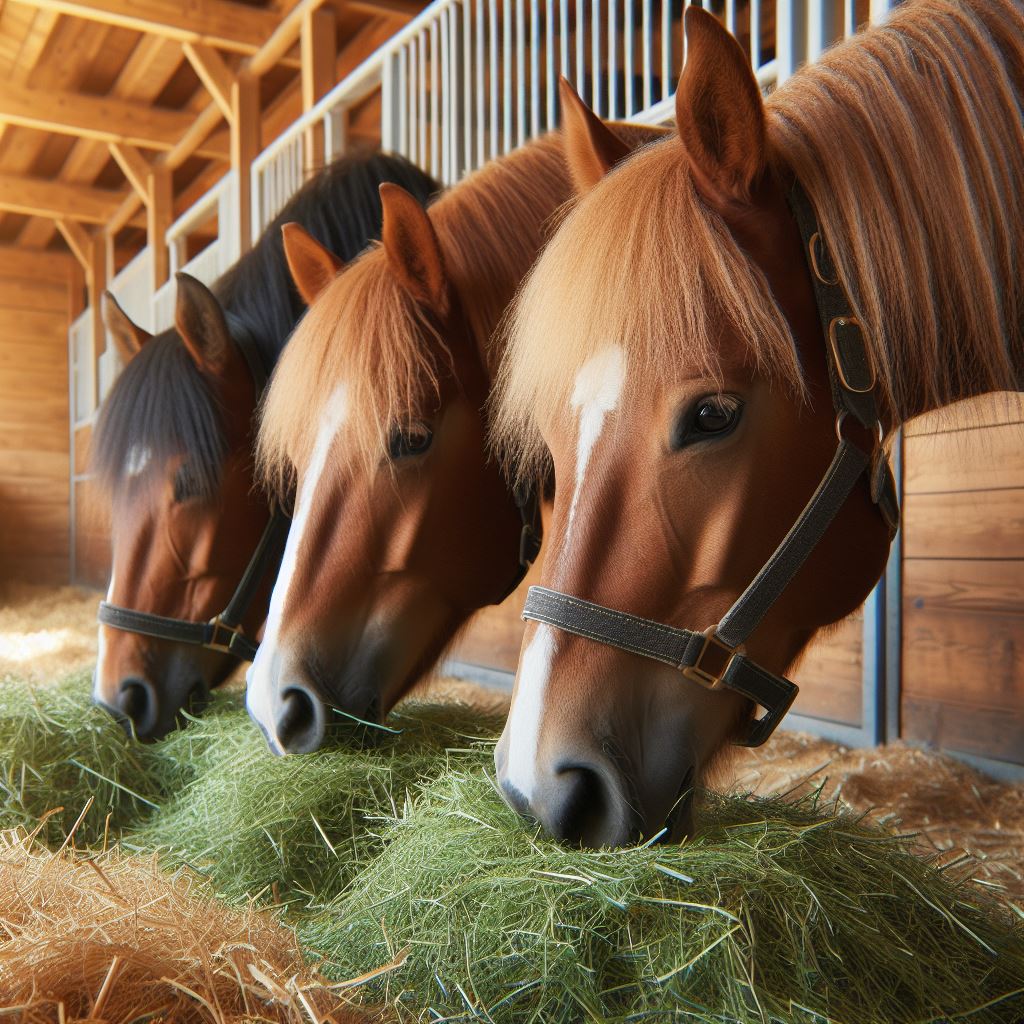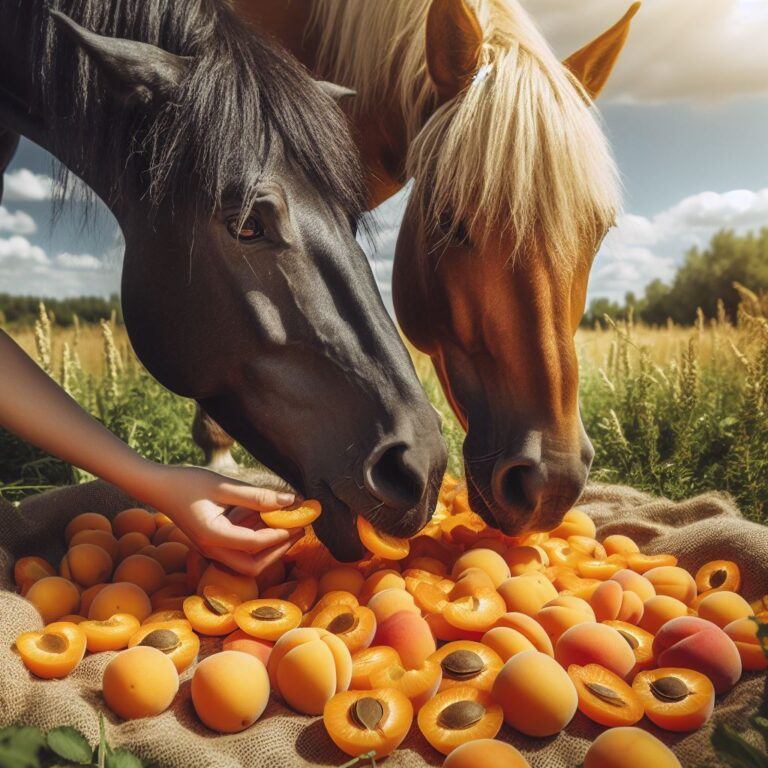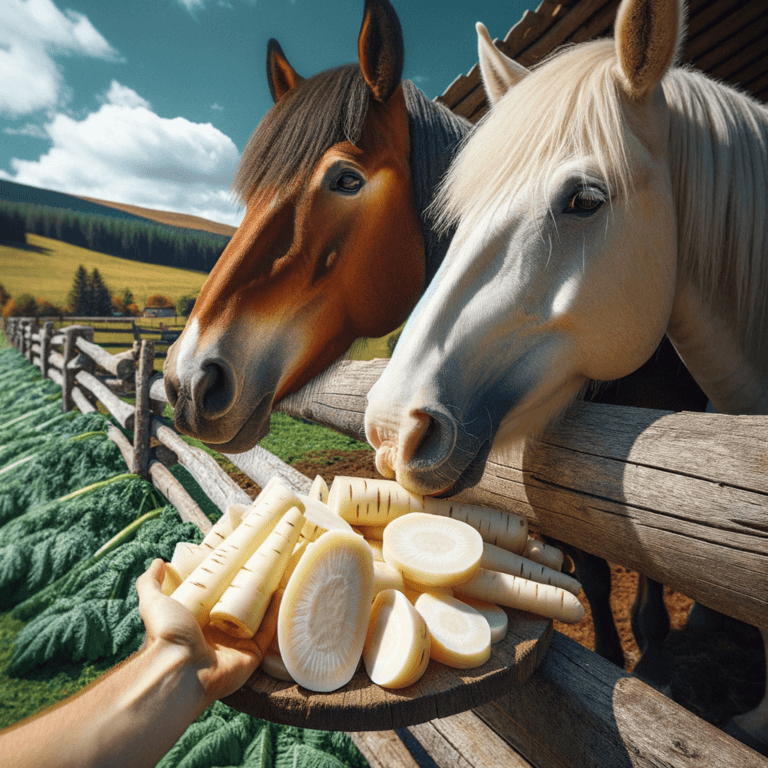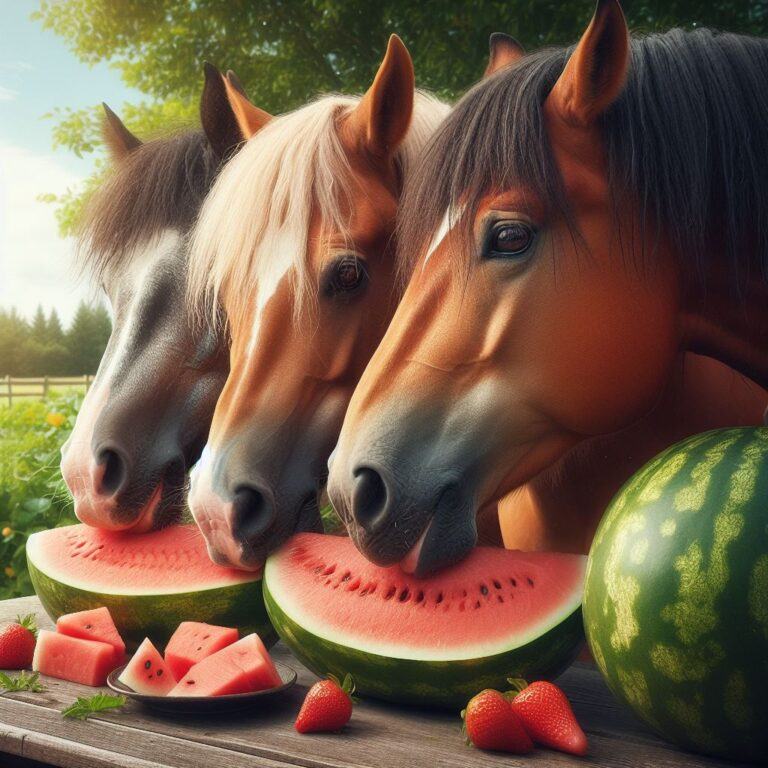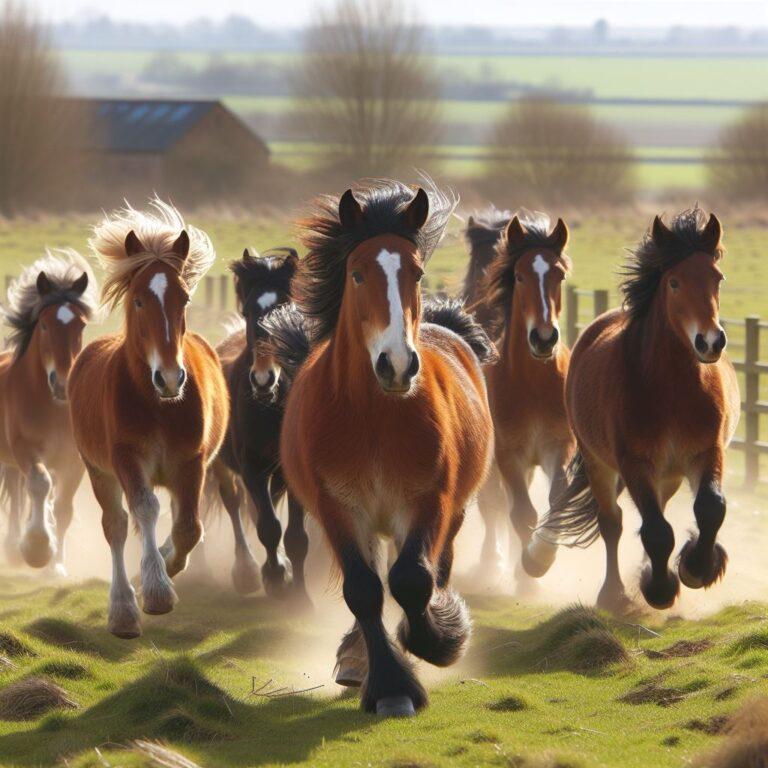Can Horses Safely Eat Grass Hay
Yes, horses can safely eat grass hay, and it forms a vital part of their diet. Grass hay provides multiple advantages, including essential fiber that aids in promoting the health of the digestive system and preventing issues like colic and ulcers. It’s also beneficial for their dental health, the constant chewing needed to break down hay helps maintain healthy teeth.
Additionally, forage from hay satisfies a horse’s natural grazing behavior, which is crucial for their mental well-being.
Not all hay is created equal though, and various types serve different nutritional purposes.
While grass hay is generally lower in protein and calcium than legume hay, such as alfalfa, it is suited for maintaining a balance in the horse’s daily feed intake without causing excessive weight gain.
This is particularly important for horses that are not engaged in heavy work.
When considering feeding horses, grass hay can often be the best choice due to its availability and suitability for a wide range of horses.
This includes those at rest, with light to moderate workloads, or those who may be prone to laminitis and need a lower-calorie diet.
It serves not only as a meal but as a recreational activity, keeping horses occupied and reducing boredom.
As we head into the next section, it’s worth noting that despite the clear benefits of grass hay, knowing its nutritional profile is key to creating a well-rounded diet.
This awareness ensures that owners provide their horses not just with fodder but with food that serves their specific nutritional needs.
Understanding the Nutritional Profile of Grass Hay
When I think about what to feed my horses, grass hay often comes to mind as a staple. It’s essential to understand that the nutritional profile of grass hay can vary, but generally, it includes a balance of carbohydrates, proteins, vitamins, and minerals, catering to a horse’s dietary needs.
The fiber in grass hay is beneficial for digestion, aiding in regular gut function and preventing issues like colic.
Grass hay, compared to legume hay, typically contains less protein and calcium. While legume hay, such as alfalfa, is rich in these nutrients, it might be too calorific for a less active horse.
Grass hay is lower in calories and often more suitable for horses that don’t engage in heavy work. However, if a horse is highly active, pregnant, or nursing, legume hay might be the better choice to meet their increased nutritional demands.
While grass hay can form the foundation of a horse’s diet, it may not always provide everything needed.
For this reason, I always advise horse owners to consider supplementing their horse’s diet when necessary.
This might involve adding vitamins and minerals or other foods to ensure a well-rounded diet, especially when the grass hay quality is lower or if the horse has specific health conditions.
As horse owners, it’s our responsibility to assess the quality of the grass hay we provide. Good quality hay should be clean, dry, and free of mold and dust.
It should also be greenish in color and have a fresh smell. Subpar hay can lead to nutritional deficiencies or health risks, so it’s crucial to source the best possible hay and store it properly to maintain its quality.
Proper Feeding Practices with Grass Hay
Determining the exact amount of grass hay our horses need depends on several factors including age, weight, activity level, and overall health. It’s so important that we adjust our horse’s diet to its individual requirements.
Grass hay isn’t just about nourishment, it’s pivotal during different life stages of a horse. Young, growing horses might need a mix of hay types for a balanced diet, while older horses may benefit from the ease of digesting soft grass hay.
Awareness of potential risks is key to safeguarding the health of our horses.
We must always ensure our hay is free from mold, dust, and harmful plants. Proper storage can prevent these issues and keep the hay fresh and safe.
Finally, remember that the right feeding practices are part of a broader spectrum of horse care. Keep a regular feeding schedule, and always provide plenty of fresh water.
Consult with a veterinarian or an equine nutritionist to optimize your horse’s diet for a long and healthy life.

